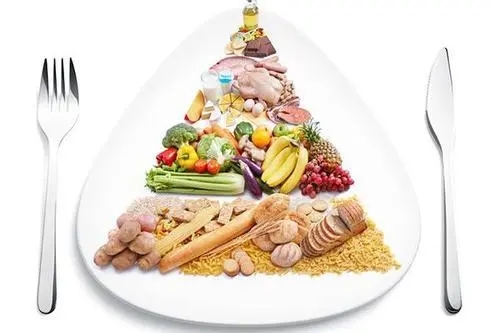Childhood and adolescence are critical periods for physical and intellectual development, as well as for the formation of one’s behavior and lifestyle. Children and adolescents should be given adequate attention to their accelerated growth rate and increased need for various nutrients during adolescence. Adequate nutritional intake can ensure their normal physical and intellectual development, and lay a good foundation for adult and lifelong health. Today, I would like to talk to you about two important dietary aspects of children and adolescents.
Three meals at regular intervals to ensure a good breakfast
Children and adolescents should establish the habit of eating regular meals. Try to avoid replacing normal rice, meat and vegetable dishes with pastries and sweets in the main meals.
As children and adolescents grow older, their school workload increases, their range of activities increases, and sometimes their work schedules are not always regular, so it is important to make sure that they eat their meals at regular intervals. Particular emphasis should be placed on ensuring that they eat a good breakfast.
Skipping breakfast can affect learning and health. Breakfast is an important source of energy and nutrients throughout the day, and is nutritionally important to the nutritional and health status of the body. Eating a nutritious and adequate breakfast every day can provide children and adolescents with the energy and a variety of nutrients needed for physical and intellectual development. Skipping breakfast or having an insufficiently nutritious breakfast not only affects academic performance and physical fitness, but also affects the functioning of the digestive system, which is detrimental to health. Therefore, you should eat breakfast every day and make sure that it is nutritionally adequate.
Breakfast should have a variety of foods and the energy intake through breakfast should be sufficient. Breakfast should have cereals, such as rice, steamed bread, bread, etc., because cereals in the body can be quickly converted to glucose, which is conducive to maintaining the stability of blood glucose, to ensure that the brain activity of the energy required. Therefore, cereals are an indispensable part of breakfast. In addition, it is best to include milk or soybean milk in the breakfast, milk and soybean milk is rich in calcium, is one of the children and adolescents physical growth of the necessary nutrition. In addition, you can also add eggs, egg yolks contain soft phospholipids, is conducive to the supply of brain development of the necessary nutrients. If possible, you can also add some meat in the breakfast, such as lean shredded meat, minced meat, etc., in order to increase the taste at the same time, but also increase the intake of high-quality protein. In addition, it is also necessary to add vegetables and fruits to breakfast.
Avoid blind dieting
As children and adolescents grow older, their understanding of beauty deepens and they become more concerned about their own appearance, especially in adolescence, when they will begin to exhibit behaviors that seek perfection in appearance, such as intentional dieting in pursuit of a perfect body shape. This is more common in adolescent girls. Pubertal girls are accompanied by development and a gradual transition to a mature body shape. In this regard, they are prone to anxiety, shyness, and nervousness, and will have the desire to keep their body shape “slim”. The slimness here of course does not refer to our common sense of slimness, but the pursuit of a thin body type. Often, we will see that the girl is obviously in a reasonable normal weight range, but still think that the body fat, to diet to lose weight phenomenon. There are a few girls because of blind dieting, the use of vomiting, eating laxatives and other extreme practices, adverse health effects. This practice will form a conditioned reflex over time, evolving into nausea when encountering meals, or vomiting when hearing words related to eating, which will eventually lead to anorexia nervosa, malnutrition, bone thinning, leading to stagnant growth and development, and in serious cases, even life-threatening. Therefore, children and adolescents should be cautious about dieting, even if it is really because of overweight or obesity hope to lose weight, should be through the means of increasing physical exercise to achieve the purpose of weight loss.




